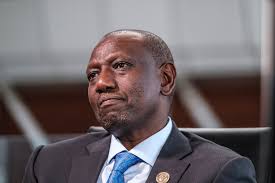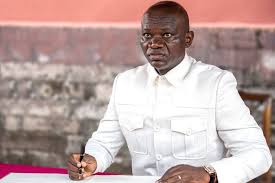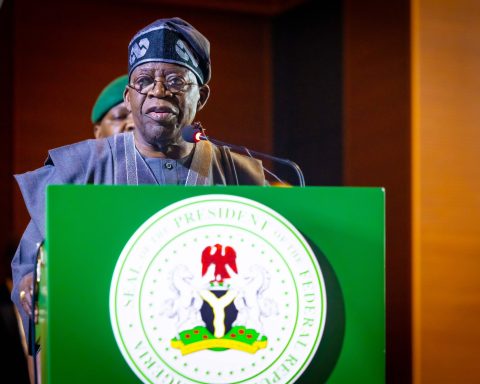South Africa made impressive strides at the top of the table in the Times Higher Education (THE) World University Rankings 2026, leading a year of significant gains for Sub-Saharan Africa’s higher education sector.
The University of Cape Town (UCT), South Africa’s leading institution and number one in Sub-Saharan Africa, jumped 16 places to a joint 164th globally its highest-ever position up from joint 180th in 2025. The achievement cements UCT’s reputation as the continent’s academic powerhouse and a consistent global performer.
Join our WhatsApp ChannelThe Times Higher Education World University Rankings 2026, unveiled at the World Academic Summit hosted by the King Abdullah University of Science and Technology (KAUST) in Saudi Arabia, assessed more than 3,000 universities worldwide using 19 million research papers, 1.5 million academic reputation survey votes, and extensive institutional data.
South Africa Leads Africa’s Surge
South Africa continues to dominate the continent’s higher education landscape, with seven universities appearing in Sub-Saharan Africa’s top 10.
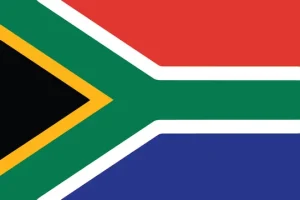
- University of Cape Town (Rank 164, up from =180)
Climbs 16 places, achieving its best-ever global position.
Maintains strong performance in research impact, teaching excellence, and international collaboration.
- Stellenbosch University (Rank 301–350)
Retains position from 2025, maintaining global competitiveness.
Known for research leadership in health, engineering, and agricultural sciences.
- University of the Witwatersrand (Rank 301–350)
Holds steady in the same band as Stellenbosch.
Remains one of Africa’s most cited universities globally.
- University of Johannesburg (Rank 351–400, up from 401–500)
Enters the top 400 globally for the first time, marking its best-ever ranking.
Reflects rapid research growth and internationalisation.
- University of KwaZulu-Natal (Rank 501–600)
Maintains last year’s band, performing strongly in health sciences and innovation.
- University of Pretoria (Rank 501–600, up from 601–800)
Returns to the top 600 after improving one full band.
Gains attributed to rising research visibility and partnerships.
- University of the Western Cape (Rank 601–800)
Maintains stability in its category, with a strong record in social impact.
- North-West University (Rank 801–1,000)
Holds position, recognised for consistent progress in teaching and research.
Uganda’s Makerere Rises Sharply
- Makerere University (Rank 801–1,000, up from 1,201–1,500)
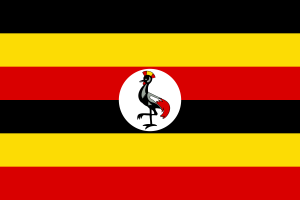
Climbs two bands, entering the global top 1,000 for the first time.
Continues to strengthen its research reputation and international partnerships.
Uganda’s flagship university and one of the oldest in Africa.
READ ALSO: Nganou Places 10th In Latest WBC Rankings, May Fight Anthony Joshua
Dangote: Fall In Ranking Of Global And Africa’s Wealthiest Is Cause For Concern For All Nigerians
Nigeria Breaks into the Elite Top 1,000
- University of Ibadan (Rank 801–1,000, up from 1,001–1,200)
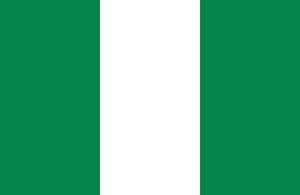
Nigeria’s oldest university re-enters the global top 1,000.
Noted improvements in research influence and international collaboration.
- University of Lagos (Rank 801–1,000, up from 1,001–1,200)
Breaks into the top 1,000 for the first time.
Improved citation scores and global visibility boost its ranking.
Ghana Holds Steady
- University of Cape Coast (Rank 801–1,000)
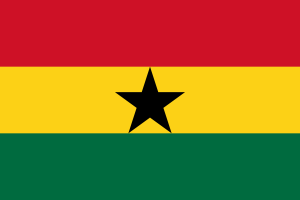
Retains its position, consolidating its place among Africa’s best.
Known for excellence in teacher education and regional academic partnerships.
A Record Year for African Higher Education
This year’s ranking saw six new entrants from Sub-Saharan Africa, bringing the region’s total representation to 55 universities from 14 countries. The region now has four universities in the global top 500, all of them from South Africa.
Senegal made its debut appearance with Université Cheikh Anta Diop de Dakar (UCAD) ranked in the 1,501+ band, while Ethiopia dropped out of the table this year.
Commenting on the results, Phil Baty, THE’s Chief Global Affairs Officer, described the continent’s performance as historic and encouraging.
“Africa is rising. Less than 10 years ago, back in 2017, the whole of Africa south of the Sahara had only 10 universities represented in the World University Rankings. Today, it has 55 universities from 14 nations that meet the tough entry criteria, more than ever before,” Baty said.
“And we are not just seeing improvements in representation, we are seeing improvements in quality too. This has been demonstrated by a series of landmark breakthroughs: Uganda and Nigeria breaking into the elite world top 1,000 group; South Africa recording a number of record highs with four top-500 universities; and Senegal joining the rankings for the first time.”
“This is a moment for celebration but also a great opportunity to build on the momentum and ensure that Africa’s university-led knowledge and innovation ecosystem is fit and ready to fully exploit the continent’s huge demographic dividend.”
Amanze Chinonye is a Staff Correspondent at Prime Business Africa, a rising star in the literary world, weaving captivating stories that transport readers to the vibrant landscapes of Nigeria and the rest of Africa. With a unique voice that blends with the newspaper's tradition and style, Chinonye's writing is a masterful exploration of the human condition, delving into themes of identity, culture, and social justice. Through her words, Chinonye paints vivid portraits of everyday African life, from the bustling markets of Nigeria's Lagos to the quiet villages of South Africa's countryside . With a keen eye for detail and a deep understanding of the complexities of Nigerian society, Chinonye's writing is both a testament to the country's rich cultural heritage and a powerful call to action for a brighter future. As a writer, Chinonye is a true storyteller, using her dexterity to educate, inspire, and uplift readers around the world.
- Amanze Chinonye
- Amanze Chinonye
- Amanze Chinonye
- Amanze Chinonye
- Amanze Chinonye
- Amanze Chinonye
- Amanze Chinonye
- Amanze Chinonye
- Amanze Chinonye
- Amanze Chinonye
- Amanze Chinonye
- Amanze Chinonye
- Amanze Chinonye
- Amanze Chinonye
- Amanze Chinonye
- Amanze Chinonye
- Amanze Chinonye
- Amanze Chinonye
- Amanze Chinonye
- Amanze Chinonye
- Amanze Chinonye
- Amanze Chinonye
- Amanze Chinonye
- Amanze Chinonye
- Amanze Chinonye
- Amanze Chinonye
- Amanze Chinonye
- Amanze Chinonye
- Amanze Chinonye
- Amanze Chinonye
- Amanze Chinonye
- Amanze Chinonye
- Amanze Chinonye
- Amanze Chinonye
- Amanze Chinonye
- Amanze Chinonye
- Amanze Chinonye
- Amanze Chinonye
- Amanze Chinonye
- Amanze Chinonye
- Amanze Chinonye
- Amanze Chinonye
- Amanze Chinonye
- Amanze Chinonye
- Amanze Chinonye
- Amanze Chinonye
- Amanze Chinonye
- Amanze Chinonye
- Amanze Chinonye
- Amanze Chinonye
- Amanze Chinonye
- Amanze Chinonye
- Amanze Chinonye
- Amanze Chinonye
- Amanze Chinonye
- Amanze Chinonye
- Amanze Chinonye
- Amanze Chinonye
- Amanze Chinonye
- Amanze Chinonye
- Amanze Chinonye
- Amanze Chinonye
- Amanze Chinonye
- Amanze Chinonye
- Amanze Chinonye
- Amanze Chinonye
- Amanze Chinonye
- Amanze Chinonye
- Amanze Chinonye
- Amanze Chinonye
- Amanze Chinonye
- Amanze Chinonye
- Amanze Chinonye
- Amanze Chinonye
- Amanze Chinonye
- Amanze Chinonye
- Amanze Chinonye
- Amanze Chinonye
- Amanze Chinonye
- Amanze Chinonye
- Amanze Chinonye
- Amanze Chinonye
- Amanze Chinonye
- Amanze Chinonye
- Amanze Chinonye
- Amanze Chinonye
- Amanze Chinonye
- Amanze Chinonye
- Amanze Chinonye
- Amanze Chinonye
- Amanze Chinonye
- Amanze Chinonye
- Amanze Chinonye
- Amanze Chinonye
- Amanze Chinonye
- Amanze Chinonye
- Amanze Chinonye
- Amanze Chinonye
- Amanze Chinonye
- Amanze Chinonye
- Amanze Chinonye
- Amanze Chinonye
- Amanze Chinonye
- Amanze Chinonye
- Amanze Chinonye
- Amanze Chinonye
- Amanze Chinonye
- Amanze Chinonye
- Amanze Chinonye
- Amanze Chinonye
- Amanze Chinonye
- Amanze Chinonye
- Amanze Chinonye
- Amanze Chinonye
- Amanze Chinonye
- Amanze Chinonye
- Amanze Chinonye
- Amanze Chinonye
- Amanze Chinonye
- Amanze Chinonye
- Amanze Chinonye
- Amanze Chinonye
- Amanze Chinonye
- Amanze Chinonye
- Amanze Chinonye
- Amanze Chinonye
- Amanze Chinonye
- Amanze Chinonye
- Amanze Chinonye
- Amanze Chinonye
- Amanze Chinonye
- Amanze Chinonye









